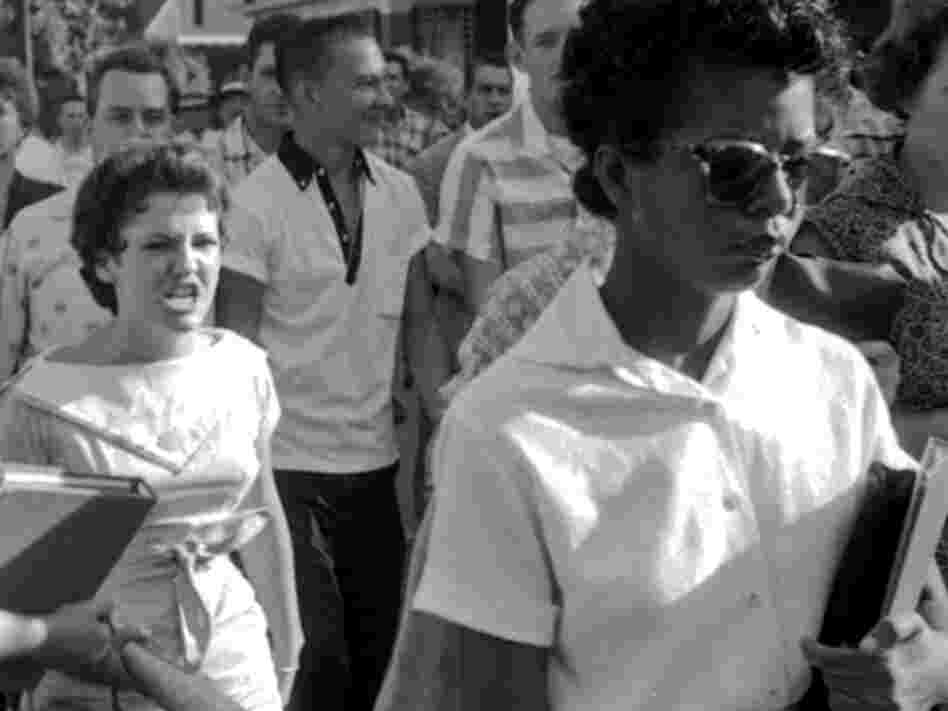Courtesy of Salon:
As the 40th anniversary of Roe v. Wadepassed, evangelical leaders marked the occasion with histories of how their community took up the anti-abortion cause. Mark Galli, editor-in-chief of Christianity Today, has suggested the movement formed out of grassroots reflection on “the terrible and inevitable consequences of legalized abortion.” Albert Mohler, Southern Baptist Theological Seminary president, insisted it arose from moral outrage triggered by Roe v. Wade.
Both histories provide pristine portraits of the origins of the evangelical right, suggesting its founders based their advocacy on scholarly assessments and aspired to noble political ends. But a history can be told that is significantly less flattering.
The right-wing evangelical movement was not an immediate backlash to Roe v. Wade. The evangelical community, unlike Roman Catholicism, showed little interest in combating abortion until almost 1980. As Jerry Falwell lamented in 1979, “The Roman Catholic Church for many years has stood virtually alone against abortion. I think it’s an indictment against the rest of us that we’ve allowed them to stand alone.”
Although evangelicals were mostly silent on abortion after Roe v. Wade, they were not silent on other political issues. Paul Weyrich, one of the evangelical right’s most influential founders, recalls that the movement initially emerged to defend racially segregated Christian schools from government intrusion:
[W]hat galvanized the Christian community was not abortion, school prayer, or the ERA [Equal Rights Amendment]. I am living witness to that because I was trying to get those people interested in those issues and I utterly failed. What changed their minds was Jimmy Carter’s intervention against the Christian schools, trying to deny them tax-exempt status on the basis of so-called de facto segregation.
In other words, as Randall Balmer has succinctly put it: “the religious right of the late twentieth century organized to perpetuate racial discrimination.”
Only after the movement was underway did it begin advocacy on abortion. It did so, in large part, based on highly dubious arguments advanced by the popular writer Francis Schaeffer.
You know I started to write something about this very thing about a year ago, but I had trouble finding the information online that I needed.
You see what I knew, but had trouble finding online support for, was the fact that Jerry Falwell, founder of the Moral Majority and a major player in the early pro-life movement, had founded Lynchburg Christian Academy (Which later became Liberty University) NOT so much because of a desire to have a Christian based education system, but to have a place where white students could attend and not have to share their dormitories and classrooms with those "Negroes."
Here is what I'm talking about:
When people die, even the racist ones, there is an inexplicable rush to trumpet the good in that person, even where none exists from a public policy perspective. The most recent example is Jerry Falwell, one of the godfathers of the religious right.
Like many Southern White ministers, Falwell didn’t sit on the sidelines at the outset of the modern civil rights movement, he joined the opposition.
“Decades before the forces that now make up the Christian right declared their culture war, Falwell was a rabid segregationist who railed against the civil rights movement from the pulpit of the abandoned backwater bottling plant he converted into Thomas Road Baptist Church,” Max Blumenthal writes in an insightful article in The Nation magazine. “This opening episode of Falwell’s life, studiously overlooked by his friends, naively unacknowledged by many of his chroniclers, and puzzlingly and glaringly omitted in the obituaries of the Washington Post and New York Times, is essential to understanding his historical significance in galvanizing the Christian right. Indeed, it was race –not abortion or the attendant suite of so-called ‘values’ issues – that propelled Falwell and his evangelical allies into political activism.”
Four years after the Supreme Court’s Brown v. Board of Education outlawing segregated public schools, Falwell gave a speech titled, “Segregation or Integration.”
His message was unmistakably clear: “If Chief Justice Warren and his associates had known God’s word and had desired to do the Lord’s will, I am quite confident that the 1954 decision would never have been made. The facilities should be separate. When God has drawn the line of distinction, we should not attempt to cross that line.”
Do those last couple of sentences sound familiar? Well they should, that is EXACTLY the same argument made against Roe vs Wade today.
However originally Falwell could not give a damn about the legalization of abortion. He was too focused on keeping the races separate. But he was already losing support and as sentiment against segregation began to change and people became harder and harder to rile up in response to the "mixing of the races" Falwell and his ilk needed another cause to rally behind. And along came Francis Schaeffer with a cause ready made for the pulpit...abortion.
And after that they never looked back. So when you see those anti-abortion signs outside of clinics calling the doctors and nurses inside "murderers" you just remind yourself that the pioneers of their movement were once standing on the street corners protesting something quite different.
Same tactics. different victims.
The pro-life movement has its roots, not in fighting abortion, but fighting desegregation.
Info Post



0 comments:
Post a Comment